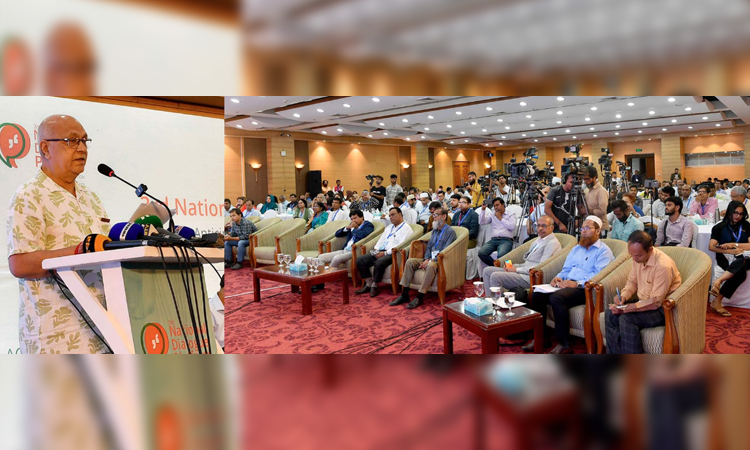News Flash

DHAKA, Sept 16, 2025 (BSS) - Disaster Management and Relief Adviser Faruk E Azam, Bir Protik, today said that mitigation is more important than response in disaster management.
He made this remark while addressing as the chief guest at the 3rd National Dialogue Platform on Anticipatory Action at the Bangladesh-China Friendship Conference Center in the capital's Agargaon this morning.
Highlighting Bangladesh's longstanding vulnerability to natural disasters, the adviser referred to the devastating Bhola Cyclone of November 13, 1970. Widely recognized as one of the deadliest calamities in recorded history, the cyclone claimed nearly half a million lives and left a profound scar on the nation's collective memory, he said.
The people of then East Pakistan felt extreme deprivation after witnessing the Bhola Cyclone, he said, adding that just a year later, Bangladesh achieved its independence through a blood-spattered Liberation War.
Since then, Bangladesh has had to face recurrent floods, cyclones and other natural calamities which caused massive loss of lives and property, devastated livelihoods, slowed down development, and made poverty eradication more difficult, noted the adviser.
He said the current climate reality suggests that disaster risks are increasing. Sudden floods, landslides, lightning strikes, droughts, heatwaves and cold spells are becoming more intense and frequent. These are threatening not only the economy but also people's everyday lives.
The adviser said disaster mitigation has emerged as more important than disaster response since 2015.
He highlighted that anticipatory action is not merely about forecasting but acting based on forecasts. "It means acting before the crisis, not after. This mindset has opened a new horizon in our disaster management approach," he said.
The adviser said progress is already visible, adding, "Through the Early Warning for All initiative, we are working to ensure that every person living at the farthest corner of the country receives accurate and timely warnings. The advancement of technology must be applied for the well-being of the people as it is our moral obligation."
He said volunteers dedicated to the Cyclone Preparedness Programme (CPP) can perform extraordinary work if provided with adequate training. "Our goal is to build a united national volunteer force that will be ready to respond to any crisis," added the adviser.
United Nations Resident Coordinator Gwyn Lewis, World Food Programme Country Director Jessie Wood, Chairman of Bangladesh Red Crescent Society Major General Professor Dr. Md. Azizul Islam (retd), Director General of the Department of Disaster Management Rezwanur Rahman and senior officials of the Ministry of Disaster Management and Relief attended the event.